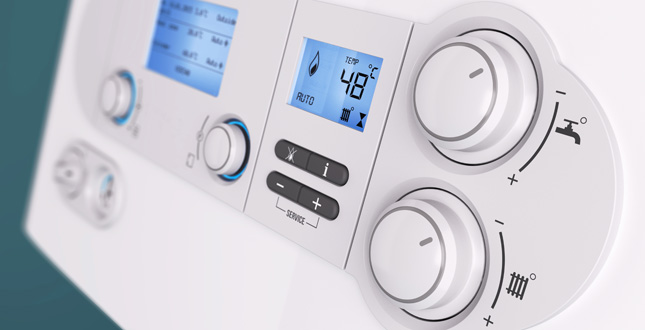

A new study assessing real-life energy use in the home has claimed that combination boilers may not be the most energy efficient way of producing domestic hot water.
The study, which was carried out in 500 homes around the country, found energy usage in properties with combi boilers was 13% more than in homes with hot water cylinders. Sustainable Homes, the sustainability consultancy that carried out the survey, said the results challenge the assumption that combis are always the better option for smaller households who use hot water intermittently and at irregular times.
According to the study, 'National Energy Study 2 - SAP in the Real World: How People Use Energy in the Home', the way people actually use their hot water systems mean that much of the energy saving potential of a combi boiler is, in fact, lost. The organisation said boiler cycling is partly to blame for this (when exhaust gases need to be purged, using more energy), as well as the fact that cylinder tanks have become far more efficient in recent years thanks to improved lagging.
Andrew Eagles, managing director of Sustainable Homes, said: "These findings are a useful prompt to people considering upgrading their boiler as well as developers and landlords building or refurbishing homes. While on a 'technical' measure combis always outperform cylinders, as we have seen in the car industry, this is not always the best guide when 'real world' conditions are applied.
"There is no right or wrong solution: instead, people should think more about their own circumstances and habits before they decide which to go for. Those that already have combis can also save money by getting in to the habit of only using the hot water tap when it will be on long enough to actually function. Some combi boilers have a 'keep hot' facility, which is in effect a small hot water tank within the boiler. A little extra fuel is required to keep this to temperature, but this could provide the best of both worlds for many."
However, a spokesperson for boiler manufacturer Worcester, Bosch Group, said the company had serious doubts about the research findings.
Martyn Bridges, director of marketing and technical support at Worcester, believes the suggestion that the efficiency levels of combi boilers are being 'overplayed' lack accuracy due to the absence of any hot water usage analysis.
"The report's suggestion that combi boilers may not be as efficient as often claimed results from simply taking the gas meter readings at each property, which is not a true reflection of the hot water usage alone; it accounts for all gas consumption," he said. "The absence of any figures relating to hot water usage and performance is notable and significantly limits the credibility of the claims being made.
"The research fails to acknowledge the possibility that gas could also be used by secondary sources to the boiler – a gas fire or cooker for example. The survey presumed that in the summer time, less hot water is used, which is a total contrast to surveys we have undertaken here at Worcester. Our findings are that as the weather is hotter people tend to shower or bathe at least once, sometimes twice a day, so it is unsurprising that there was more gas consumed than their survey expected.
"The verbatim comments from householders within the report on their immersion heaters make you wonder whether they are using the electrical immersion heater to heat the storage cylinder, rather than their gas-fired regular or system boiler. While this may be something combi boilers can’t do, it would also reflect on the gas consumption being lower.
"Worcester manufactures regular, system and combi boilers, as well as hot water storage cylinders and instantaneous water heaters, making us very impartial on what type of system the householder chooses to have installed. There are benefits and disadvantages in all types of system over others however, this report doesn’t seem to be as scientific as it should be when making such strong claims."
Jeff House, regulatory marketing manager at Baxi, agreed that every system type has its own particular advantages.
"When a central heating system is being specified, there isn't a single 'fit all' solution," he said. "Installers should advise their customers on a case-by-case basis, and making a decision between a combi boiler and a hot water cylinder will largely depend on the number of bathrooms within the property and the household's hot water requirements and use patterns.
Mr House also said the energy labels now required under the Energy-related Products Directive should help installers and consumers make an informed comparison of hot water efficiencies. "Under the Ecodesign of Energy Related Products Directive (ErP), hot water tapping cycle tests are required in accordance with EN13203-2, which imitate typical daily use patterns. These tests dictate which energy efficiency class is declared on the product labels.
"It is worth considering that due to differences in design and materials used in heat exchanger construction, the resultant thermal mass can vary greatly between product ranges and manufacturers – therefore some of the findings observed in Sustainable Homes' study cannot be attributed to all combi boilers."
If you'd like to keep up-to-date with the latest developments in the heating and plumbing industry, why not subscribe to our weekly newsletters? Just click the button below and you can ensure all the latest industry news and new product information lands in your inbox every week.